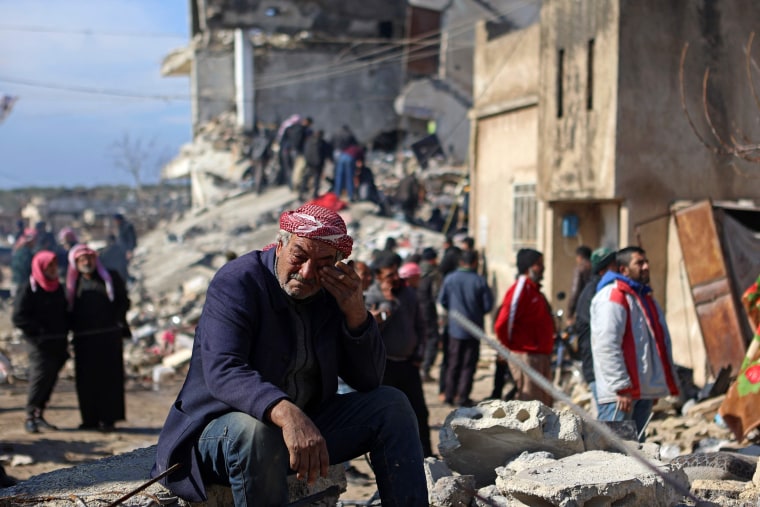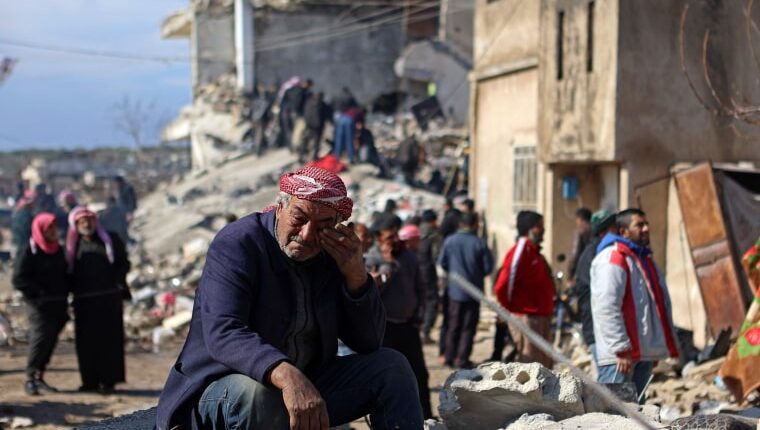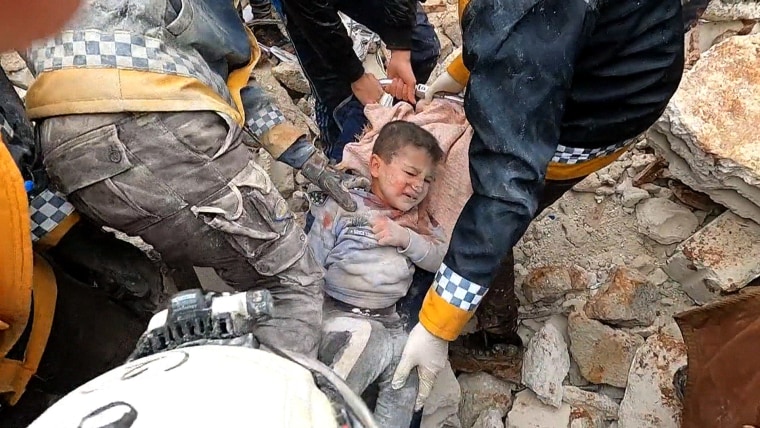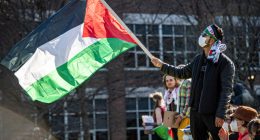The desperate race to save people trapped under the rubble in northern Syria poses unique challenges that aid groups and local volunteers warn could spell deadly delays in help reaching the war-ravaged and earthquake-stricken pocket of the country.
Abdulkafi Alhamdo, a resident of Darat Izza in the northwest, described hearing voices under collapsed buildings as rescuers toiled in freezing conditions with little to no heavy machinery.
“We were hearing screams and messages,” Alhamdo said in an interview with NBC News Now. “We couldn’t do anything,” he added, describing how he and other volunteers removed rubble with their bare hands.
“I couldn’t sleep at night, because they were still in my ears,” he said.

Earthquake damage has temporarily closed the Bab-al-Hawa crossing, a humanitarian aid corridor that is the only official way into the rebel-held area from outside Syria, said Sanjani Quazi, the deputy head of the United Nations Office for the Coordination of Humanitarian Affairs’ regional office for the Syrian crisis.
Delivery of U.N. assistance across the Turkish border into Syria “has been temporarily suspended,” she said.
Bab-al-Hawa is a lifeline for the opposition-controlled sliver of northeastern Syria, a region that is home to many anti-government fighters and their families who fled their hometowns during the war.
Isolated and bombed by forces loyal to President Bashar al-Assad and Syria’s most important international ally, Russia, 90% of the 4.4 million people living in the in the area rely on humanitarian aid, according to the World Food Program.
Weeks before Monday’s earthquake, the U.N. Security Council said in a statement that humanitarian needs in Syria had reached the “highest levels” since the civil war started in 2011, amid an ongoing cholera outbreak and a mercilessly freezing winter.
Charles Lister, the director of the Syria and Counterterrorism and Extremism programs at the Middle East Institute, told NBC News “not a single ounce of international aid has reached northwestern Syria” since the earthquake, due to “extensive damage on the main approach road” in Turkey heading to the Bab-al-Hawa crossing, and a lack of staff.
According to the White Helmets volunteer first responders, by Wednesday morning 1,280 people had died in Syria’s rebel-held territories and more than 2,600 had been injured. The quakes completely destroyed more than 360 buildings and severely damaged over 1,000, the organization added. The numbers are expected to keep rising.
More than 2,000 volunteers were working in sub-zero temperatures through the night in northwest Syria, said Ismail Alabdullah, who has volunteered with the White Helmets since 2013.
The 36-year-old described being woken when the earthquake struck on Monday, frantically grabbing his one-month old daughter from her bed, and running outside of his house with the rest of his family and into the street.
“After just a few minutes, I heard screaming from the neighbors that a building had collapsed on them,” Alabdullah said. “We lost seventeen people in just my neighborhood.”
Even as the prospect of finding survivors diminished with each passing hour, Alabdullah said volunteers saved three siblings trapped under the rubble in Atareb, some 10 miles from the Turkish border.
It has become normal for volunteers to extricate people from crumbled buildings in the area that were bombed by the Assad regime and its Russian backers. Now, with the destructive force of an earthquake piled on top, rescue efforts were “totally different,” Alabdullah said.
Shortages of diesel, generators, heavy-lifting equipment, shelters, and medical facilities have put titanic pressures on rescuers, Alabdullah added.
“So far, no one has said that we will send equipment to northwest Syria,” Alabdullah said of the Syrian government, and international aid. “It will take time, and we will lose lives.”
Source: | This article originally belongs to Nbcnews.com











